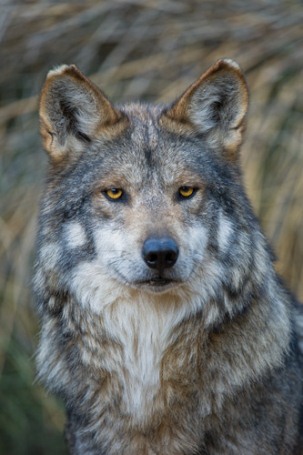27
Jan
Can Bad Meal Deter Wolves?

Susan Montoya Bryan / The Associated Press
Wildlife managers are running out of options when it comes to helping Mexican gray wolves overcome hurdles that have thwarted reintroduction into their historic range in the Southwest.
Harassment and rubber bullets haven’t worked, so they’re trying something new — a food therapy that has the potential to make the wolves queasy enough to never want anything to do with cattle again.
As in people, the memories associated with eating a bad meal are rooted in the brain stem, triggered any time associated sights and smells pulse their way through the nervous system.
Wildlife managers are trying to tap into that physiological response in the wolves, hoping that feeding them beef laced with an odorless and tasteless medication will make them ill enough to kill their appetite for livestock.
“¦
Conditioned taste aversion (CTA) — the technical term for what amounts to a simple reaction — is not a magic bullet for boosting the recovery of the Mexican wolf, but some biologists see it as one of few options remaining for getting the program back on track after nearly 14 years of stumbling.
“¦
Biologists working at a captive breeding center at the Sevilleta National Wildlife Refuge in south-central New Mexico treated six wolves last April and two more in October. The animals were fed baits made up of beef, cow hide and an odorless, tasteless deworming medication that makes the wolves queasy.
Fish and Wildlife Service biologist Susan Dicks said the initial tests appear to be successful, with the wolves not wanting anything to do with the beef baits after their first serving.
“We’re learning as we go, but so far we have seen some good aversions produced,” Dicks said. “Again, it’s impossible to say yet whether this translates to a livestock animal running around on the hoof.”
*****
To read the full article published in the Albuquerque Journal, click here.
PLEASE WRITE A LETTER TO THE EDITOR of the Albuquerque Journal thanking them for this article and promoting more releases of Mexican wolves into the wild.
The letters to the editor page is one of the most widely read, influential parts of the newspaper. One letter from you can reach thousands of people and will also likely be read by the U.S. Fish and Wildlife Service.
Tips for writing your letter are below, but please write in your own words, from your own experience.
Letter Writing Tips & Talking Points
Below are a few suggestions for ensuring your message gets through clearly-your letter will be most effective if you focus on a few key points, so don’t try to use all of these.
– Start by thanking paper for their coverage of this important issue-this makes your letter immediately relevant and increases its chances of being published.
– Stress that only about 50 Mexican gray wolves remain in the wild, making them the most endangered mammal in North America.
– Conditioned taste aversion has potential as a method of preventing lobos from killing and eating cattle, but we’ll never know if it works in the field unless wolves treated with CTA are actually released into the wild.
– The eight wolves treated with CTA so far have all been waiting in captivity for periods of one to two years!
– It’s time for the U. S. Fish and Wildlife Service to release this pack and other CTA-treated wolves.
– In order to open up more good wolf habitat for wolves that are being released into the wild for the first time, the USFWS needs to release the environmental assessment on direct releases into New Mexico for public review immediately, go through the required public comment period, and make a decision. The dithering has gone on long enough.
– There are wolves who have had this treatment that are ready for release. This is another reason to get more wolves out there sooner.
If you need additional help or want someone to review your letter before you send it, you may email it to info@mexicanwolves.org
Thanks you for all you do-your actions make a big difference for these rare and wonderful wolves!



